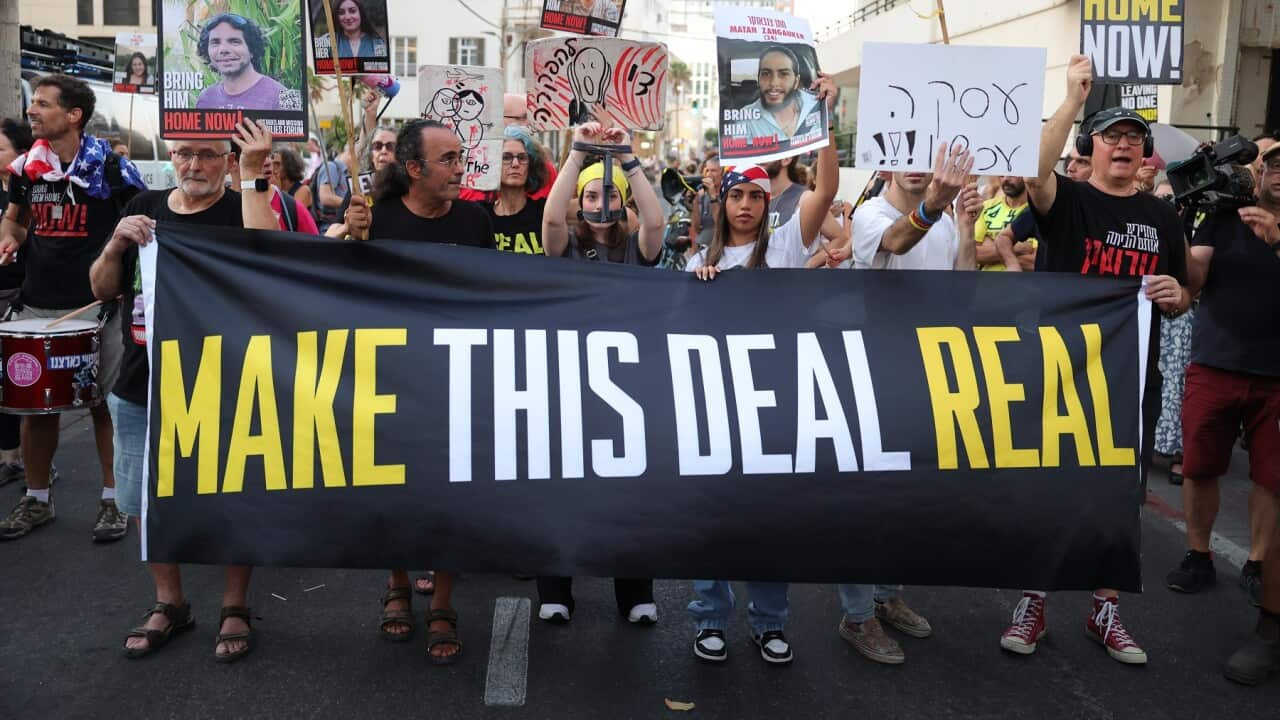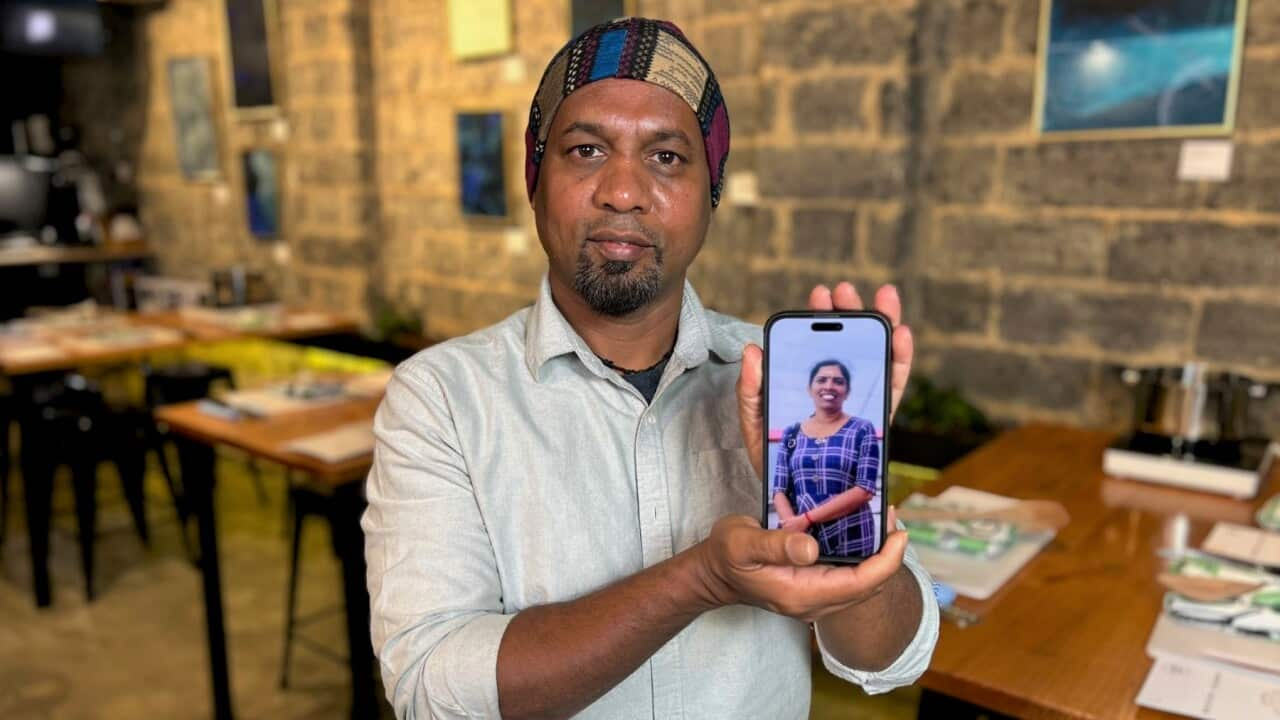TRANSCRIPT
In the midst of war comes the quest for peace.
On his ninth visit to the Middle East since war broke out last October, United States Secretary of State Antony Blinken at last thinks he has some good news.
He says Israel has accepted the United States' so-called bridging proposal, which is hoped to lead to a longer-lasting cessation of hostilities.
“In a very constructive meeting with Prime Minister Netanyahu today, he confirmed to me that Israel accepts the bridging proposal. That he supports it. It's now incumbent on Hamas to do the same. And then the parties, with the help of the mediators - the United States, Egypt and Qatar - have to come together and complete the process of reaching clear understandings about how they'll implement the commitments.”
Mr Blinken knows his job is far from finished after he leaves Israel.
He's not-so-subtly hinting that the support of fellow Middle Eastern powers will be needed to make sure Hamas agrees to the US proposal.
“From here, I'm going on to Egypt and Qatar. These are our two critical partners in this effort to get the ceasefire agreement over the finish line, to get the hostages home, to put everyone on a better path to lasting peace and security. And so, I look forward to consulting with President Sisi, with the Emir, Sheikh Tamim, with other critical colleagues in both countries on the immediate steps ahead. And in particular, what needs to be done to ensure that Hamas comes along.”
At the heart of the dispute as Mr Blinken and his fellow mediators try to find some sort of pause to the conflict are the following issues:
Hamas says it will only accept a permanent ceasefire, not temporary one.
Israel says the war will only end with the total destruction of Hamas.
And there's also disagreement about freedom of movement in Gaza, a continuing Israeli military presence in Gaza, and the identity and numbers of prisoners to be freed in any swap that is part of any peace agreement.
Whilst Mr Blinken is hopeful, that emotion isn't shared by weary people on the ground on both sides of this conflict.
On the Israeli side, there's been a protest outside the Israeli parliament conducted whilst Mr Blinken was meeting with Israeli officials.
Of paramount concern for many Israelis is the welfare of their countrymen taken hostage by Hamas in the attacks of October 7 last year.
Some protesters don't believe that's a concern so important to Prime Minister Benjamin Netanyahu, despite the release of hostages being an obvious key point in peace proposals.
Protester Alon Shirizly says Mr Netanyahu's grasp on power is dependent on the conflict.
"To tell you the truth, I expect nothing from this meeting, because our prime minister is blocking the hostage deal. He doesn't want to make the hostage deal, because if he will make the hostage deal, there will be no government and he will be out of office."
On the Palestinian side, cynicism about peace proposals remains, in an atmosphere where the emphasis for many people remains on the very basics of staying alive day to day.
Palestinian health authorities say nearly 40,000 Palestinians have died in Gaza since October 7, and 2.3 million people have been driven from their homes.
This makeshift camp in Khan Younis sits amongst the rubble of destroyed buildings.
It houses displaced people from places like Gaza City and Beit Hanoun.
Rania Jundiyyah is a displaced woman from Gaza City.
She says there's simply no safe place to go in Gaza.
"We are being displaced everywhere. The Israeli army tells us to go to the humanitarian areas, but the Israeli army bombs these humanitarian areas. Where do we go? Where do we go? All the people are crammed into Muwasi. Where will we go after Muwasi? And they still bomb the humanitarian areas. They drop leaflets on us, call us, and tell us to head to certain places. There is absolutely no safety."
The threat of Israeli bombs in Gaza is now matched by the threat of polio.
Polio was eradicated from the territory 25 years, but has re-emerged as streets are now flooded with sewage and piles of garbage, and vaccination rates are plummeting since the re-emergence of the conflict.
Mr Blinken says preventing the spread of the disease is a priority.
“For example, about polio, because we very much share the concern about the possibility of its re-emergence, and we've been working on a detailed plan to make sure that those who need to be vaccinated against it can get vaccinated and we're working with the Israeli government on that. And I believe that we'll be able to move forward with a plan to do that in the coming weeks. It is urgent. It is vital.”
The great fear of the wider world is the broader Middle East will be plunged into war triggered by the Gaza conflict.
Those fears won't have been eased by the latest Israeli strike on Hezbollah targets in Lebanon, which injured six Lebanese citizens and two Syrian children.
Most notable was a strike on a Hezbollah arms depot in the eastern Bekaa valley.
Israel regards Hezbollah as a proxy of Iran.
Iran blames Israel for the killing of Hamas leader Ismail Haniyeh in Tehran last month.
Iranian Foreign Ministry spokesman Nasser Kanaani says Israel is a terrorist nation and is vowing revenge on it for the killing of Mr Haniyeh.
But he simultaneously claims Iran won't escalate the conflict.
"We've told our friends that we are not seeking escalation in the region and we support altruistic efforts for establishing a cease-fire. Meanwhile, we emphasise our intrinsic right to punish the aggressor and establishing deterrence against a terrorist regime and will use this right at the appropriate time."













